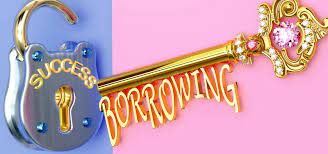Income and expense strategies for a successful retirement.

Let’s meet at the library.
I suspect that everyone reading this has a public library near them. You probably know how to drive to your library without thinking much about it. Now let’s say you invited your friend to join you at the library. Your friend lives on the other side of town. It is certainly possible that your friend might take a different route to get to the library than you do, right?
What is the point of this story? The point is when there is a problem to be solved there is usually going to be more than one way to solve that problem. However, this is important when thinking about problem-solving.
Two different solutions may get folks to the same place but that doesn’t mean both solutions are equally as good. One solution may get you there quicker. One may get you there at less expense. One may get you there more efficiently or safer. Not all solutions are of equal quality even if each solution provides a somewhat similar result.
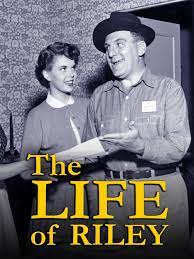
That’s the way it works with retirement planning as well. People can take different routes to get to that life of luxury, that life of Riley they call a successful retirement.
This is how I did it.
I’m going to tell you how I made it to retirement. I’m going to tell you how I retired at age 52 without setting aside any savings whatsoever for retirement or inheriting any money. We didn’t have a second household income in our family. My wife and I agreed that her responsibilities of raising three children and managing our most important financial asset, our house, were more important than what I was doing selling cold medicine, and mouthwash. It’s just that, for some very odd reason, the financial world rewards the mouthwash seller to a greater degree than the homemaker.

How did I know when to retire, when to quit my job? These were big decisions. If I had made the wrong choice I might be working at Walmart right now in the sporting goods department.
When you finish reading what I’m going to share I think I can predict how you’re going to feel about things. I think most people are going to say my methods were a little too aggressive for them, a little too unorthodox. Rest assured, as I did what I did I never once thought I was being too aggressive or unorthodox. I simply thought I was being effective.
Many of you reading this have already retired. You have found your way to the “library”. As you read how I got there, you may, or may not agree with each of my approaches. Time will not permit me to go into super detail on each topic, but by the time I finish this message, you may think that I did go into super detail at your expense!

Get money now! So, I didn’t need to work for money later!
In a nutshell, the financial component of my retirement plan was simple. I wanted to get all the money I could as quickly as I could. Why? So, I wouldn’t have to work for money ever again. It was important to make sacrifices and execute plans up to age 52…so I wouldn’t have to make sacrifices monetarily ever again for the rest of my life.
Please feel free to share.
I know that many of you pass along these messages to your friends and younger family members. They might still have time to plot the best strategy for achieving a successful retirement lifestyle. However, even those folks at younger ages won’t benefit unless they take real action and have an outstanding plan. A good financial plan waits for no one.
Now without further ado, I present to you my “Income and Expense Strategies for a Successful Retirement”.

Don’t fear the wrong foe.
Most people worry about running out of money in retirement. In point of fact, most people should be more concerned with having TOO MUCH money in retirement and at the end of their life. Take a look at all of the retired people you personally know. How many are homeless? How many have an estate big enough to have their heirs fight over the money? I guess you can see my point.
Take this example. Let’s say you retire with $1,000,000. As long as you earn a greater after-tax rate of return percentage than the percentage of funds you take from that million dollars each year you will NEVER run out of money. Want to read those words again? Pretty simple, huh?

Do you really want to quit?
When you retire you will likely be leaving the highest-paying job you ever had. You had better know what you’re doing. Few people can leave the highest-paying job they ever had, retire and then decide they want to start working again at an even higher wage. That almost never happens.
When I retired my objective was never to work for money again. I never ever needed work to “keep me busy”. There are nearly an infinite number of things for me to do in retirement. If “work” is the #1 thing I want to do with my time then I should keep working. My advice? Just don’t quit that great paying job, retire and then decide you really need to go back to work to earn just a little bit more. If you haven’t figured out how much money you need to retire don’t try to make things right by working for half as much as you did before you mistakenly quit your job.

How much? What’s your number?
How much money do you need to retire? The answer to that question is not difficult to determine. If you don’t plan to work in retirement (by the way, going back to work isn’t retirement it’s a job change) you simply need assets that throw off income at a faster rate than your expenses eat up those assets. In a moment I’m going to share with you some very interesting data on my income and expenses. Just to be clear, when I say, “I, me, mine, my” and the like I am referring to my wife and me.

This is a discussion about financing retirement.
This discussion on retirement is about the financial part of retirement. Things like health, happiness, satisfaction, and more are as important to a happy retirement as anything. It’s just that today we are talking about the FINANCIAL aspect of retirement.
I might add that the better off I am financially the healthier, happier, and more satisfied I am likely to be. There is no reason for money to make you “less” in any of these categories. I would rather be rich than poor in retirement. If I become rich I’ll just have to figure out how to handle that situation!
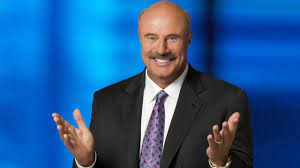
The past tells us about the future.
Not that I watch Dr. Phil…but he does say the best predictor of a person’s future behavior is their past behavior. Knowing where you have been money-wise is absolutely invaluable. Knowing where you are going is more difficult to discern but equally if not more valuable. However, predicting the future is much more difficult than recording the past. Why?

The future has buses. Buses? Yes, buses as in you and/or your ideas can get hit by a bus! I always acknowledge that I could get hit by a bus but I probably won’t get hit by a bus tomorrow. Obviously, one day I will be wrong about that.
The title of this piece is “Income and Expense Strategies for a Successful Retirement”. When I retired, I decided I didn’t want to work for money anymore. If I wanted to drive down the street and turn left, I wouldn’t have anybody telling me to turn right. If I was not going to work for money anymore then the money I had was going to have to sustain my beautiful wife and me for our hoped-for very long lifespan.
Folks, this is exactly how I did it managing income and expenses.
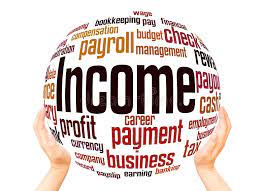
INCOME
Our income in retirement really only has two significant cash flows. One would be the Required Minimum Distribution (RMD) from our IRA. Our second source of income in retirement is Social Security. This makes tax planning simple. I really can’t “time” my income from these two sources.

Give it to me now, right now.
We took Social Security at age 62. Most people do. Just because most people take Social Security at age 62 should you do that? I’m sure your mother asked you more than one time that if every kid jumped in the lake, would you jump in the lake? Sometimes jumping into the lake is a good idea.
I think taking social security early, at age 62, is an outstanding idea. Follow me on this example. You and your friend are born on the same day in the same year. Yes, it could happen. Twins do it all the time. You take SS early. Your friend decides to wait until age 70. One month after you each turn 62 you are one month’s worth of social security checks ahead of your friend.
Oh, no!
Not to be morbid, but let’s say at that point you and your friend both jump in the lake. You each drown. I told you this was a morbid example. Who “wins” on the social security front? You do! You cashed one social security check and your friend didn’t cash any. Wait. A sound social security plan can’t be this simple, can it? I know. Your friend’s spouse can get a bigger SS check in this circumstance but let’s not get bogged down in minutia. There are just too many “what ifs” with a small probability of happening to worry about such things.
There are a large group of people who think waiting until the maximum age, age 70, to collect SS is the hot ticket. When they turn 70 they get a bigger check than the person who took their first social security check today at 62.

Nevertheless, when you both turn 70, assuming you didn’t drown in the lake, the person who collected social security at 62 will have a substantial stash of money. They will have hundreds of thousands of dollars more than the person who waited to get their check until age 70.

Does the tortoise win the race? Maybe.
Each year that you and your friend live past 70 your friend catches up a little bit at a time. At about the age of 80, the two of you will be tied.
Then on a hot summer day, you will ask your friend if he or she wants to go jump in the lake. People who are aged 80 and above typically don’t jump in lakes. When both of you are 80 years and one month old, your friend will edge just a little bit above you in terms of total Social Security payments. Every year for the rest of your lives beyond age 80 your friend will get further and further ahead.

Maybe you make it; maybe you don’t.
Don’t get me wrong. I don’t read the obituaries with the voracity of some of my friends. However, when a celebrity dies I always wait until the end of the story to see how old they were. I’ll bet you do that too.
Lots of people don’t make it to 80. How many retirees die by age 80? About half. That’s why the social security break-even point is about eighty! Not only are those people who didn’t live to be eighty dead, but they also lost the Social Security battle. The folks who made it past 80 will win by a little bit if they make it to 80 years and one month. If they make it to 85 or 90 they win by more. But it is age, that always wins!

Spoiler alert.
If you get social security at 62 and die at age 70 you will “win” the social security game by a huge amount. But, you’ll still be dead. If you take social security at age 70 and live to be 90 you will “win” the social security game by a huge amount. But, you will also be dead. If you check out somewhere in the middle the difference in social security payments might not be much no matter when you decided to get your first social security check.
What does RMD spell? Required Minimum Distribution!
The second and largest piece of our income is the RMD from our IRA. The more successful my investments are the bigger the RMD is each year. The government makes you take money out of your IRA even though you might not want to. What do I think of that? I don’t think nothin’ about it. I don’t complain about government rules. I just play by the rules.

Nevertheless, it might be a good idea that the government makes people take money from their savings. Otherwise, some people might just hoard their money. I don’t believe people should hoard their money but lots of people do.
I never worry about taxes.
With just an RMD and Social Security, and not much else, we really don’t have to worry about taxes. I don’t worry about stuff I can’t change. That’s why our friends are always telling me I’m the most laid-back guy they know.

Yes, I have to pay taxes. I just don’t have to worry about them. I also don’t have to complain about taxes. That frees up a lot of time right there! If you know me or have spent any time with me you have NEVER heard me complain about taxes. I don’t have any decisions to make as regards taxes. It don’t do no good to spend time talking about stuff you can’t change.
My RMD funds and my social security payments are very similar from year to year. The RMD has to be taken out and received each and every year. The social security checks have to be cashed. Even if I didn’t cash the SS checks I would still owe the tax on them.

Yes, you might have interest and dividends and maybe some stock appreciation. I won’t have any rental income. I’ve been there and done that. To me that’s work! I don’t want tenants calling me. I don’t want property managers calling me on a tenant’s behalf.
We have owned rental properties in the past. The only happy days I ever had being a landlord were the days when I sold the properties. One of our holdings was a group of furnished condos in Maui. I never liked it when a renter would call me and ask that I give him a new TV! Managing rentals is work. A basic tenet of my retirement plan, see what I did there, was I don’t work for money anymore.
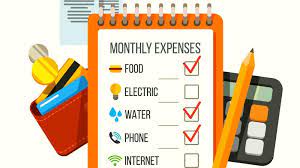
EXPENSES
Now I’m going to talk about my expense categories. With a budget, you have income and expenses. Hopefully, I’m not going too fast for anyone. We already talked about income. Expenses are what eat up your income!
I think you will find my discussion about expenses most interesting. This will allow you to look over my shoulder when I’m paying my bills. To be honest Carol pays the bills in our house but then you knew this was a metaphor.
I don’t work for money but if I did I would have to pay taxes on those earnings. My federal and state tax rate is about 31%. That means if I wanted a dollar after tax to spend I would have to earn $1.50. But, for about the seventh time I will tell you I don’t work for money.
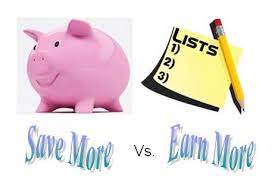
Saving is equal to earning.
Did you know that saving a dollar is just as important as earning a dollar? It is! Every time I save a dollar then I don’t need to spend a dollar fifty before tax from my investments to generate a dollar. This is another pearl. Yes, I am casting pearls. You just need to bend over to pick up the pearls.
If I earn $1.50 I clear about a dollar after tax. If I don’t spend that dollar the dollar fifty I would have needed to clear a dollar after tax remains a dollar fifty. Then when that dollar fifty earns 10% each year it’s worth a dollar sixty-five! Got that?

No! Don’t think about it. Don’t do it.
Wait! Gosh darn it, just wait! Now I see the eyes of some folks beginning to glaze over. They see garage sales, they see beat-up used cars, and they see themselves buying their clothes at Walmart. No! Just plain no!
This is my anthem.
Here is one of my strongest financial tenets. I want to make one thing perfectly clear, crystal clear. I never want to buy cheap things cheap. I don’t want to buy used stuff cheap. I want to buy good things cheap. I never want to cheap out and buy a knockoff Apple watch. That’s just my feeling on this topic. If the reader is cheap then my words will not change that. Most people learned how they were going to feel about money before they were ten years old. I understand I am not going to change that.
I pretty much know what my IRS life expectancy is going to be. I fully expect to live past my IRS life expectancy but then doesn’t everybody? You won’t find me buying cheap stuff in virtually any category. My wife deserves good stuff. I deserve good stuff. We just don’t need to pay full price for good stuff.
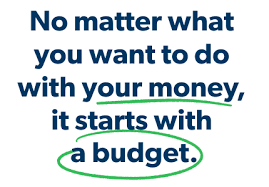
Don’t have a budget? Shame on you.
If a young person and probably a person of any age doesn’t have a budget they are making a HUGE and GIGANTIC mistake. Some people think a budget focuses on the past. Wrong! A good budget is a window into the soul of the future. Wait! Even I liked that phrase!
What I’m talking about here is having a household budget. Let’s say you spend $100,000 a year on a dozen different expense categories/groups. Some of those expenses will be fixed such as a home or car loan. Others of those expense categories will go up by different rates of increase every year. Some might go down but probably not many.
So today you are spending $100,000 every year. Many expenses go up. In ten years, you might be spending $140,000 a year. Maybe more. When you retire you’re going to have to have a combination of income and assets that can hopefully cover your expense needs for the rest of your life. Yes, it’s pretty simple to say this, but for some, it’s much more difficult to actually do. Here’s how I think about expenses. These are my expenses. When was the last time anyone shared their expenses with you? Is “never” the right answer?
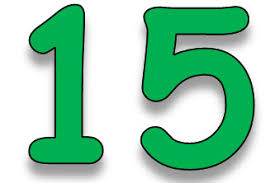
I have about 15 expense categories. More than forty years ago I began keeping track of these expense groups. Please don’t roll your eyes. You need to be understanding these expense categories even if you don’t have the same ones. Let’s get started.

Home Mortgage.
One of our largest expense categories, but not our largest (believe it or not), is our home mortgage. I am proud to say that I owe more on my house than anybody else that I personally know. I might even owe more on my house than anybody that you personally know.
My current home loan is a balance of $2,558,000. My interest rate is fixed at 2.25%. That’s a much better rate than we had in 1980. Our mortgage rate was 17.5% back then.
What was the bank thinking when they gave me THAT loan for more than two and one-half MILLION dollars? Just because I added a couple of zeros to the loan amount when they weren’t looking…you would have thought the underwriting department would have caught that! Didn’t they know I haven’t earned a single dime of work income in more than 20 years?

Here’s the funny thing about my home loan. I will make a payment on the loan next month and the month after that and for all of the months over a 10-year loan term. After 10 years what will the loan balance on this loan be? $2,558,000. If you do the math, you will see that I won’t pay off a single penny of that loan in ten years.
Sorry, Dave. You are incorrect about this one.
Dave Ramsay would roll over in his grave, if he were departed, hearing that news. I don’t want to pay off that loan. I don’t ever want to pay off that loan. I would love to owe the bank that amount at that interest rate for the next forty years if they would let me.

Here’s the funny thing about my theory on home loans. I think I am lapping the field with this. Others would hate it to the nth degree if they owed as little as $10,000 on their home. I know. I feel you. Many of you are saying I would NEVER want to owe more than two and one-half million dollars on my house. I want to pay that sucker off now. Dave Ramsay told me to.
I’m just sharing facts, no opinions here.
I can only present these facts in my defense. I retired at age 52. I didn’t inherit any money. As a kid, my family was too poor to pay attention. My spouse never worked outside the home by our family’s choice. With that as background, you might want to hang around long enough to hear the complete story,
If you are getting the impression that I am quite proud of the fact that I owe more on my house than anybody that I know and that I am most pleased that I am not reducing my loan balance with each monthly payment you are correct.

I wanna build up home equity, yes? No! Absolutely not.
If I didn’t have a home loan then the equity in my house would increase by $2,558,000. My home would be completely paid off. If someone told me that my home was completely paid off I would be one sad puppy. No one likes to be around a sad puppy.
As I have mentioned before, every dollar that you have in home equity is earning you absolutely zero in terms of investment returns. My home loan of $2,558,000 carries a loan rate of 2.25%. It’s fixed for 10 years.
Anyone who has ever thought about this knows their home’s value has nothing to do with whether the home has a mortgage or not. Nothing. Most people don’t seem to think about things like that but it’s true. Your home’s value will go up, down, or sideways regardless of whether you have a mortgage on your home or not.

I can take that $2,558,000 and invest it at a rate of return that is far greater than 2.25% over the next 10 years. If I don’t want to invest those funds I can enjoy them…because that money is not tied up in home equity. As you get closer and closer to “sunset” do you want your money sitting in home equity or should your money be in your full control allowing you to do more stuff? Did you pick the “put every penny into home equity” option? Have you considered that you might be reading the wrong newsletter?
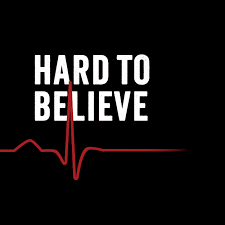
Wait! Somebody gave you $300,000 tax-free?
When I was ten years old I would have thought that getting thirty dollars tax-free would have been like winning the lottery. At the age of ten, I can’t recall walking around with ANY money. Now somebody wanted to give me $300,000? What do I learn from this? It is impossible to predict the future!
I am committed to simply sharing facts with you. This message is long on facts and short on opinions. I am not bragging but sharing the facts of the day. Maybe someone out there can reapply some of the things I’ve done for their benefit. I sure hope so.

When I got that home loan for $2,558,000 the bank slipped me a check for $300,000. Yes! Think “cash out refinance”. That doesn’t happen every day. How much did I pay in taxes on that $300K? Nothing! Now THAT’S the power of using your money to enjoy and/or make more money for the home team.
How much should your home loan be? The bank will tell you.
I am a proponent of first having a mortgage and then having as large of a mortgage as you can possibly afford. You will not have to decide how much a mortgage payment that you can afford. Do you have help here? Yes! The help is called a bank. The bank is very good at not wanting to loan you any more money than you can pay back. If they don’t think you can make the payments they won’t give you the loan!

Real Estate Property Tax.
The next expense category I will talk about is real estate property tax. Some people think of California as a high-tax state. I live here. I don’t agree with that comment at all. I think it’s sort of a politically focused comment but since I don’t talk about politics, I won’t go beyond that statement.
We have lived in our home for 21 years. Our real estate taxes are 0.4% (that’s less than 1%) of the value of our home. Although that’s still a large expense relative to all of our expenses, it’s a very reasonable real estate tax rate. In California real estate taxes can only go up a maximum of 2% each year. When I calculate my budget, it’s easy to predict where real estate taxes for us will be in five years or twenty years.
California, Hawaii, and New York pay the largest absolute amount of property taxes. Why is that? That is primarily true because home prices are higher in those states. Property taxes are limited to just $10,000 as an itemized deduction on your tax return. Why is all of that the case? Some people think it’s because of the one thing these three states have in common. You can guess what that is.

Electricity.
I think I mentioned somewhere along the line that I was in the 31% federal and state tax bracket. This means that when I want to spend $6,000 I have to take $9,000 out of my IRA. Or, said another way, I have to spend $9,000 from my Social Security checks in order to clear $6,000 after tax.
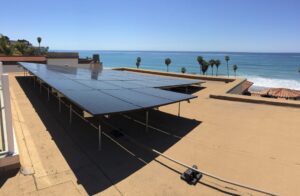
I have a power plant on my roof. It spits cash down the rain gutter.
We happen to have 38 solar panels sitting on our roof. They’ve been there for ten years this month. I’ve never had a penny of maintenance or repair on those solar panels.
Sometimes, when I’m tired of looking at my lovely wife I go up on the roof and just admire those solar beauties. The system cost me $33,000 to install. Then government rebates kicked in eleven grand knocking my cost down to $22,000. I don’t make the rules on stuff like this. I just play by them. The system savings from electric bills that are zero allowed the entire system to pay for itself in just 4.4 years.
Although I don’t think California is a high-tax state it is a high-cost energy state. Our kilowatt-per-hour rate for electricity where we live ranges from $0.40-$0.55 per kilowatt hour. That’s high. Our gasoline prices are high as well. What is the solar equivalent of gasoline savings? An electric car. More on that later.
If we didn’t have solar panels, our average monthly electrical expense would be $500 a month or $6,000 a year. Because our electric bill is zero we don’t pay $6,000 a year in electricity costs. We don’t have to take out $9,000 each year from our IRA to pay an electric bill.
Keep raising those electric rates California. I am untouchable.
I fully expect electricity rates in California and probably just about everywhere to go up possibly even faster than the inflation rate. Electricity rates don’t matter to me whatsoever. My system produces and is expected to produce all of the energy from the sun that our house would need for the next fifteen years or more. Our electric bill is likely to remain at zero. I have no inflation expectation with electric expenses at all. That number is zero and will stay very close to zero for the life of our homeownership.
Our savings after the solar was paid off have totaled just a bit more than $30,000 in the 5.6 years after the system paid for itself. That’s about $45,000 I didn’t have to take out of my IRA.
Here’s a recap up to now.
Just to recap our home loan is fixed for ten years. Our real estate taxes can only go up 2% a year. Our electricity expenses should remain at zero for many years to come.
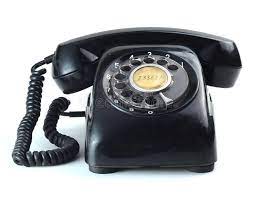
Telephone.
Our next expense category is for our phones. Long ago I dropped my landline. If I could get Carol to accept my recommendation that she drop the expense of her landline, I would be both shocked and surprised. That is never going to happen. I give up. I can’t change that.

We are an iPhone family. We get the newest iPhone each and every year because I want to buy good stuff at the lowest possible price. We’ve got every bell and whistle that is provided with iPhones. We get a decent price with a family plan. That price might increase a little bit each year. Phones are just one more example of my always wanting to buy good stuff cheap. Yes, I know the proper grammar is to say “cheaply” but I don’t think that word has the down-home charm of “cheap”.

Water, Sewer, Trash.
The next expense category is water/sewer/trash. O.K. this expense category is not particularly exciting, is it? You should know I’ve had the same expense category titles for 30-40 years. Why change now?
When I turn on the water I expect the water to come out of the faucet. Same thing with our sewer needs…going in the other direction. If you paid me one million dollars I couldn’t tell you with any certainty the day when the trash is picked up at our house. There are some things I don’t need to know.
I like to say that I have “people” to handle the trash. How does the trash miraculously move from near our garage out to the street once a week? I have wondered about that for years. I never want to speak these comments too loudly when I’m around Carol though. As long as she is willing to put the trash out on some unknown day each week, I’m not going to ask her about having a landline.

Insurance.
Our next expense category is insurance. I am a strong believer that you should not insure anything when you could pay for the loss if you had to. We have a homeowner’s deductible on our house. The deductible might be more than just about anybody that you personally know. What is our homeowner’s insurance deductible? $84,550. Does that seem high? If anything happens that costs us less than $84,550 I’m on the hook. I think we save a couple of thousand dollars a year with our insurance premium by doing it this way. We’ve never had a homeowner’s loss in nearly 50 years of homeownership.
Be willing to take a risk…but don’t be stupid.
I know what some of you are thinking. What IF something fails and it costs me $25,000? If that happens I’ll pay for it. If it doesn’t happen I will collect $2,000 in savings every year for thirty years. Guaranteeing the result you want will cost you a lot of money. Take a chance in life. Spent the earnings from your managed risk-taking. But, don’t be stupid.
We also insure our cars and our lives to some extent. We have an umbrella liability policy and earthquake insurance. Those policies are all meant to cover those bad things that can happen in life that could be very expensive as well.
The life insurance premium is fixed. The other insurances can go up in cost by 5-10% a year or so. Those increases can be managed by having the proper kinds of coverage, the right deductibles, and by shopping around.
Direct TV/Internet.

Spoiler alert (again)!! Just last week we “cut the cord” and switched from DirectTV to YouTubeTV! So far we love it! YouTubeTV is less expensive, has unlimited DVR storage, no hardware and no contracts amount other things. The info below was written a couple of weeks ago and I was too lazy to change it.
The next expense category couples our cost of Direct TV and internet. We used to have a monthly bill of about $150 for DIRECTV. Then I discovered that if I call them on a frequent basis and tell them that I am going to drop the service if they don’t drop their rates they will almost always drop their rates. This is kind of a hassle but I have turned it into a game, a profitable game.
Some time ago, I got our $150 per month DIRECTV bill reduced for a year to $45 a month. Now I think our monthly DIRECTV bill is about $80 a month. We gain a short-term promotion and then lose one and I call them just to “chat”. I do warn Carol that one of these times when I threaten to quit the Direct TV service they are actually going to let me do that. Then she will be without TV for a short period of time until I get a better solution figured out.
Editor’s note: Two weeks ago I called DirectTV. They wouldn’t reduce our rate. I threatened to quit. They still wouldn’t reduce the rate. I quit.

Federal Income Taxes/California Income Taxes.
The next two expense categories are our federal income taxes, and California income taxes. I don’t really worry about these expenses whatsoever. Why don’t I worry? I can’t do anything about my taxes.
Our income is pretty well known. It’s not subject to significant changes. I can’t time my income.
Please don’t hate me because I play by the rules.
We are still one of the 10% of households or so in all of America that itemizes taxes. Because our mortgage is so large, a significant portion of the mortgage is tax deductible. I think it’s a great idea that the government has decided to partially “sponsor” the home mortgage payments of people with really large loans. Whenever you can get other people to pick up the tab go for it. Folks do that all the time when they redeem a manufacturer’s coupon at the grocery store. People still do that, right?
By the way, just because I think that’s a good idea that doesn’t really mean anything. I can like the idea or not like the idea and it’s not going to change the result. Yes, I would prefer that the government allowed me to deduct the entire interest expense from a $2,558,000 home loan. The fact is they at least let me deduct the interest on the first million dollars of my loan. This is going to have to be good enough in these times of means testing everything.
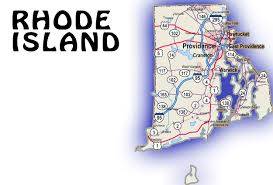
Natural Gas.
This is our smallest expense category. It’s the Rhode Island of our expenses. We average less than $100/month for natural gas. Natural gas heats our home. We live in a warm climate. Nevertheless, at night in California, it gets brutally cold. The temperature could get down to 40 degrees.

Carol likes to keep a cold house. I don’t. I wear shorts and a t-shirt and no socks or less virtually 365/24/7. I plead with Carol to give me more heat during these nearly ice-laden winters. She won’t budge. I’m going to tell you a secret. Please don’t share this little tidbit with Carol. Sometimes I will sneak over to the thermostat, even though I don’t really know how it works, and nudge things up a couple of degrees. I know. That’s cheating, isn’t it?
Car Payments for Carol and me.
The next expense group is car payments. Right now, Carol doesn’t have a car loan on her Lexus. Nevertheless, in future year’s budgets, I plug in a loan payment for her when I think she might have one. That expense stays there for the number of years I expect her to have a car loan.

Another one of my favorite loans.
My car loan on my Tesla costs me $1,480 a month. The payment is fixed for six years. That car loan is outstanding. I feel the same way about this car loan as I do about my home mortgage loan and our three children. Wait? What did he say? I kid because I care!
The interest rate on my car loan is 1.99%. I could have written Tesla a check for $100,000 when I bought the car. Then my car would be free and clear. If I did that Tesla would have the one hundred grand and I would have the car. That’s only half good.
The way I did it is I got the car AND I kept the $100,000 and only have to give them $1,480 of that hundred thousand every 30 days or so. In the meantime, I invest that money that I didn’t give Tesla. At the end of a six-year loan term depending upon the rates of return I get I will earn an additional $27-$57,000.

This is not a time to shudder. It is a time to smile.
It’s a fantastic idea to borrow money. Some people shudder when they read that. If you can’t invest your money at a rate higher than these low borrowing costs you’re not investing in the right places. Again, the bank is not likely to loan you more than they think you can pay back. That should give you a little more confidence in this borrow-and-invest strategy.
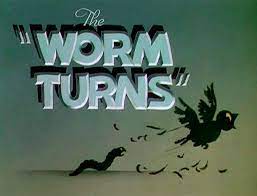
What happens when the worm turns?
This should go without saying. If the best car loan interest rate I can get is 15% and the most I could realistically expect each year from my investments was 8% what would I do? I wouldn’t get a car loan! I would pay cash or I would not buy the car.
By the way, I do not recommend that people trying to build their wealth buy a new car. New cars are not a good investment. They are an indulgence. On the other hand, if you have the money and you are no longer trying to increase your wealth I say buy a Tesla! They won’t catch on fire. They don’t take long to charge. The batteries won’t go bad after six months. None of that bad stuff that some people wish would come true is coming true.

Medical.
Now we move on to medical expenses. This is one type of expenditure that you had best have fully insured. No one wants to save for retirement their entire lives and have a medical probably take them down.
People just don’t share well.
At age sixty-five people in the United States get Medicare. Medicare is fantastic. People 65 and over love Medicare. Would people 65 and over like to see people who are 64 get Medicare? No, they would not. That factual statement is simply a comment on people in general.
Medicare premiums don’t go up very much unless you are rich and getting richer. Then when you make too much money, the Medicare premium is going to go up and no one wants their Medicare premium to go up. However, a person’s Medicare premium wouldn’t go up, unless they were making even more money than they had in the past!
Lucky? Fortunate? Good planners? All of the above.
Lots of my readers at Procter & Gamble are retirees. P&G retirees are very fortunate in that they get what amounts to catastrophic healthcare insurance beyond what Medicare-type programs pay for. From what I’ve read only about 10% of companies in today’s world offer retiree medical care. I keep reading that medical care expense is going up quicker than just about any expense. In my experience, I don’t see that at all.
This past year, the retiree medical expense went from $132 a month for two people to $134 a month for two people. My goodness. That’s less than a one percent increase from an expense category that if you were to read the headlines is going through the roof.

Don’t have a stroke over things you can’t control.
I might also add this. I thought far too many people were about ready to have a stroke when the medical insurance rates didn’t come out fastest enough to meet their expected timing this year. Me? I just hung back. I knew the rates would come in due time and likely be acceptable. What if they weren’t? No problem, man. I don’t worry about what I can’t change. That’s why I’m the most laid-back guy they know according to Jill and Stephane of Northern California and Georgia, respectively.
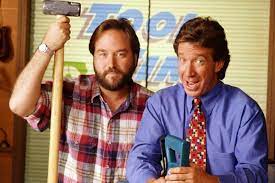
Home improvement.
Now let’s move over to the expense category of home improvement. I hate the home improvement expense category. I don’t like surprises when it comes to money. If something is a major repair like a furnace or an outdoor tile deck replacement I put it in the category of home improvement. Then next year I will back out that particular expense from the home improvement budget because I know it’s unlikely to occur for a number of years into the future.

I might also point out that I don’t fix anything at home. Don’t get me wrong. I’ve tried. Each time I try to do something I have to make five trips to Home Depot which includes buying some tool I will never need again. Then my finished product looks like dogshit. Nope. Now I have just one thing in my toolbox. That’s a Visa credit card!
We’re down to just two expense categories. I know this has been a long read, but if you put into practice what I have laid out here, this stuff can’t help but make you wildly successful.

Vacation and Entertainment.
The next to last expense category is what I call “vacation and entertainment”. What types of expenses go into this category? These can be small or they can be very large.
Once I leave the front door for a trip or night of entertainment, every expense that I encounter, including food, drink, lodging, rental cars, airplanes, and cruise ships fall into the vacation and entertainment expense category.
Believe it or not, for us the vacation and entertainment category is the largest of any of our expenses. Heck, I’m even writing this on a flight to Santiago, Chile for gosh sake.

Carol don’t eat much and that’s meant as a compliment.
Since I’ve been retired over the past 21 years, I have averaged nearly 200 days of travel every year. I’ve flown an average of three flights a week. That’s 200 days of hotels and rental cars, and probably 600 meals or more in restaurants. When Carol comes along that’s 1,200 meals for the year…but then she don’t eat much.
That amount of travel spending can add up. It’s sort of difficult to put an inflation increase number on this category. Let’s just say I spend $62,981 a year on vacation and entertainment. I’m not saying that’s our number and I’m not saying it’s not.
Let’s say I got to the point where I couldn’t afford $62,981 a year on vacation and entertainment. There are lots of ways I could handle that. I could stop staying in Marriott hotels and downgrade to a Holiday Inn. I wouldn’t WANT to do that.
My plane has now landed in Santiago and I am continuing to write this from my suite at the Sheraton/Marriott in Buenos Aires. Yes, I could stop traveling 200 days a year and travel 175. I could feed Carol less. I wouldn’t want to do any of those things, but if inflation became an issue, I could make some changes.
Am I cutting back? Not at this point.
You would’ve thought by the age that I have attained I would have wanted to back off on travel. I never have felt that way. I don’t currently feel that way. However, as I look around in five years or ten years, or twenty years it is hard to expect that I will be traveling 200 days a year forever. I did just renew my passport for another ten years. I don’t expect to do that more than two or three times in the future.
As I mentioned previously, I have a pretty good understanding of what age I am now and what age on the high side I might expect to live to. Although the vacation entertainment number is larger than any other budget expense it is also one of the most controllable.

It’s not really difficult to track every penny.
With regard to spending, I know where every penny goes. Every penny goes into one of the expense categories mentioned. If you were sitting next to me and wanted to pester me you could ask what about this expense? What about that expense? What category are they in? I would be like a dog chasing a ball. I would never get tired of telling you where every penny ends up.
Don’t even tempt me with this comment. What comment? This comment. “Geez, I would never want to spend all of my time in retirement keeping track of every penny I spend”. I wouldn’t either and don’t. The system does almost all of the work.
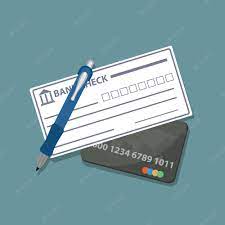
Credit/Checks.
The final category to cover is what I call “credit/checks”. Yes, I came up with these category titles 40 years ago or so. At least I didn’t categorize any of them as “blacksmith expense” or “VCR/FAX expenses”.
The credit/checks category vacuums up every penny that we spend that doesn’t fall into any of the other categories I’ve mentioned. The bigger expenses in credit and checks might be gasoline (even though I have no fuel expense whatsoever with my Tesla), clothing, food eaten in the house, household staff, and stuff like that. If an expense didn’t fit somewhere else it goes into “credit/checks”.

Conclusions.
Now we’re getting close to the end and even closer to making conclusions about what to do with all of this information.
I always try to use simple examples.
Again, by example let’s say that I spend $100,000 a year. Then I take each and every expense category and add an inflation factor to it. Some expenses don’t change at all. Some might be projected to increase by 3% or 5% or 10% each year. I use custom-made (by me) Excel spreadsheets to execute our budget planning. I can make complete expense budgets fifty years into the future with a few taps and clicks. Next year’s expenses might increase to $103,000 and the year after that 107,000 and on and on and on.
It’s all about income, expenses, and assets.
Then I look at my assets and my income sources. My assets are what I accumulated during my working life. My income sources are my RMD and my social security checks. There is also a bit of cash to draw down if needed. I will assign a rate of return that I expect to get from my invested assets. I’ll observe inflation and send up a prayer of thanks when SS checks go up. Well, maybe not a prayer. I don’t pray for stuff like that. Nevertheless, if the government sends me more money I won’t return those checks.
This is not pie in the sky. I did this for 20 years and year #21 is looking good.
In the first 20 years of my retirement, I earned an annualized rate of return of 8.6%. Those are not guesstimated rates of return. They happened. I was there to see it all. If you take a certain amount of money and increase it by 8.6% year after year for twenty years you’ll be doing O.K.
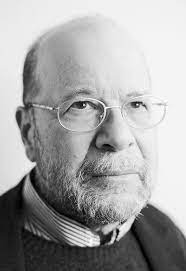
This was huge for me. Thank you William Bernstein.
I have my assets invested in a broadly diversified portfolio of low-cost stock and bond index mutual funds. I don’t use a financial advisor to help manage my investments. I never have. I don’t expect to. When I can’t do it well enough due to cognitive decline I’ll pass those responsibilities over to our son. He knows as much about all of this stuff and probably more than I do.
Maybe one more example?
Let’s say I have a million dollars in investable assets. I can assign an expected return on investment for that money. Then each year I will subtract the amount of money from all of the expenses that I expect to incur.
It’s really important to understand that if you have $1,000,000 and invest it at an after-tax rate of return that is greater than the percent that you are spending from that million dollars each year you will never go broke. A lot of people don’t think of their financial lives like that. I do. In some ways, it’s pretty simple. However, what is simple to think about is not always easy to accomplish. If you’ve ever missed a three-foot putt you know what I’m talking about.
This is an important paragraph.
In a nutshell, everything I am talking about can be rolled into this paragraph. You have a million dollars by way of example. In the first year, you spend $78,700. Your million-dollar stash earns 7.1%. Then the next year you spend 103,400 and earn 12.2%. Then…fill in the expense numbers and investment numbers for five years or twenty-five years. If you don’t run out of money then you did pretty much what I have recommended in this message.
Like I say if you are fifty or sixty or maybe more it might be, but then again it might not be, too late for you. How about for your kids or grandkids? Time takes everybody out in the end. That’s the downside of time. However, time can be the most important financial factor of all if you use time the right way.
Congratulations!
That’s about it. Congratulations if you made it to the bottom of this review and didn’t skip too much above. Believe it or not, I was trying to be concise. However, when I am concise, people sometimes take what I’m saying out of context. They might try to make a conclusion that they feel more comfortable with by doing this.
Let’s not make this bigger than life. It’s only your money.
Just a reminder… this is a discussion about retirement and money. It is not a discussion about health and welfare and treating people well and all of the other very very important factors that make up a high-quality life. This is just a discussion about retirement and money.
You can pay a lot for guarantees in life…maybe too much.
I know there are people that want to celebrate the fact that they have no mortgage and no car payment. In my judgment, that is a false celebration. That is guaranteeing peace of mind that comes at a tremendous cost. That cost is the cost of opportunity. Folks who support that theory will have missed out on the opportunity for huge earnings from the money they DIDN’T give the bank or the car company or the home builder.
No harm; no foul.
I fully understand that I am not going to change the views of people who feel the way they feel. However, at the same time, it makes me feel really good to at least share this information. Too many people will say they can’t do this or that. It doesn’t make them feel comfortable. Money management is not about “feeling”. It is about playing the percentages and doing the right thing with your money. Who wins when that happens? You and your family and your family’s family.
Thank you for hanging in on this important and profitable topic. I’m always available on a one-on-one basis to chat the topic back and forth just in case you feel exactly the opposite of what I have shared with you today or have a question or any kind of comment.
I feel like you could read this type of advice in a Wall Street Journal article. Those people do that stuff for a living. I don’t do any of this with a profit motive. When I retired I vowed I would not work for money again. If I ever accepted money for any of this that would be work. If this were work I might have to turn left when I wanted to turn right. That’s working for the man (woman). I stopped doing that at the age of 52.

I didn’t dream this stuff up but I do like to spend like a drunken sailor.
For nearly 100% of these ideas (O.K. probably 100% of these ideas) these are not my original thoughts. I didn’t come up with them. I read about them somewhere. I watched somebody else practice them. Then I moved to fit those ideas into my situation the best I could. We don’t have any money problems. I try to spend like a drunken sailor. We travel our butts off and spend a lot of money on a lot of stuff. I never would have been able to do that if I didn’t practice what I’ve been preaching here.
I don’t think I meant to say “preaching” because when you are preaching, you can’t learn much from anybody else. If you meet me in the streets, you will know that I spend as much time as I possibly can asking other people questions because that’s the only way I’m ever going to learn anything. It’s not unusual for me to say to Carol, “I just spent twenty minutes talking to that person. I could tell you a dozen things about them. They never ever asked me a single question”. She just smiles. She’s heard it all before. But I don’t think she’s heard about the thermostat and I would just as soon keep it that way.
All the very best to each and every one of you,

Randy Lewis
The most indebt guy you know and seemingly proud of it!

